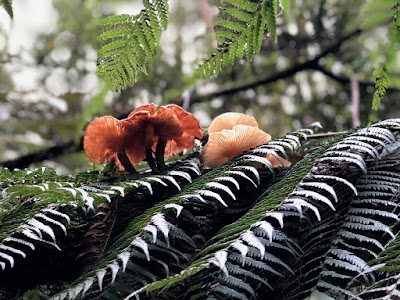NEW YEAR, NEW YOU...
WHAT DOES IT MEAN TO BE NEW?
With the Australian academic year just underway, schools and educators in this part of the world are gearing up for a fulsome and exciting year ahead.There is a wonderful buzz in the air as the promise of a new year unfolds into the tentative and delicate reality of the first few weeks of school. It's a time of high emotion for many and a time of fast-paced activity and much busy-ness. Amidst this energy, are the new children that will come to our schools, the new families and new class groups, to attend ‘welcome to school’ events, snap open their new lunchboxes, come dressed in new (often neatly pressed!) uniforms and experience new environments and materials for learning. In these early days, teachers arm themselves with long ‘to-do lists’ and the classrooms and centres have a lovely fresh welcoming feel to them. The dynamism of this beginning is alive, contagious and full of hope.I have just started a new role in a wonderful local school, a move that has prompted a process of re-calibrating and re-centering many aspects of life, adjusting the balance points within and between them. With this change, I have been thrown into the deep-end of ‘new-ness’ once more, I have to admit, it's a slightly faded, yet very familiar feeling.For many of us, this time of changing jobs, schools and/or roles can be a valuable space for seeing oneself a-new, for re-aligning personal values and professional purpose. In these moments, the thresholds between one life experience and the next, we encounter significant moments for reflection and creativity. It's a pertinent time to re-consider who we are, why we teach, and where we think we may be headed in the year to come.For adults, change like this is often the result of an intentional process, a decision made, a change that was actively sought or found. Yet for children, it often comes without their consent or choice. I wonder…How do children come to know this feeling of ‘new-ness’ when it is thrust upon them?What does the space of ‘being new’ feel like to children in our care?It's a slightly odd concept to think of yourself, at any age, as ‘new’…New to what? New to who? After all, what is new?A few years ago, I had intended to begin the teaching year by exploring the idea of new connections and friendship with my new group of 4-5 year olds. At the time, I decided this would be a worthy and fruitful opening provocation for the class, especially, I thought, as it opened the door quite nicely to our first unit of inquiry on ‘relationships’.I sat down with the group and asked them to think about what it felt like to be ‘new’ and prompted the group to consider how they might establish new friendships with other children in the group. Within seconds my plan was out the window as one child loudly exclaimed:“but we’re not new, you are! It is you who is new!”Of course the gift of this perspective stopped me right in my tracks. How could I not have seen this? I quickly came to realise that these children had not come to join my class that year, I had come to join theirs. In that moment, with that class, suddenly my new year ‘to-do list’ seemed much more ‘do-able’… and that unit of inquiry on relationships certainly took a quick turn for the better.What a privilege it is to teach young children, to share an entire year of their childhood as we journey through the year. One of the greatest joys of working alongside children is the gift of perspective they bring and how, if we listen, we will always learn something new.To this day, every time I meet the buzzy enthusiasm of the new year, I remember that clever group of children. I remember how quickly and capably they changed my viewpoint forever, emulating the words of Lewis Caroll when he so wisely wrote, “I cannot go back to yesterday, I was a different person then.”Perhaps it is a useful reflection for us all… when you welcome a group at the start of the year or a family joins your class mid-year… do you ever stop, look in the mirror and ask Who is new here?Food for thought…Fiona



This comment has been removed by a blog administrator.
ReplyDeleteI admire this article for the well-researched content and excellent wording. I got so involved in this material that I couldn’t stop reading. I am impressed with your work and skill. Thank you so much. Best CBSE curriculum
ReplyDelete